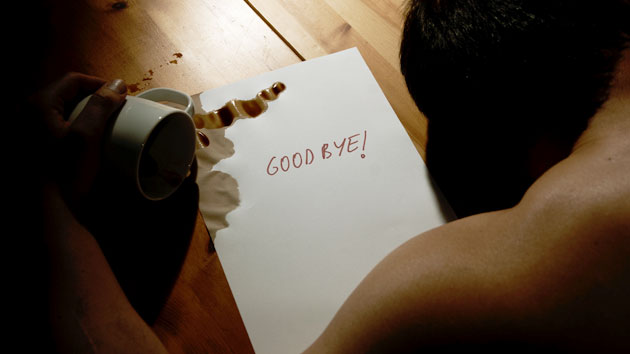Sometimes the pressures of life cause some people to turn to suicide to relieve themselves of their ‘unbearable’ burden. Sorrow and heartache could lead to loss of hope and purpose in life, hence one contemplating suicide. Marang Kapeo* is a single mother of two boys. The youngest, Thabang *, aged 8, recently put a knife to his belly after his mother had scolded him for not doing his homework.“My son lives with my older sister, who usually helps him with his homework; I came to look after him for a few days while she was away. She had emphasized that I should also take him though their routine of doing homework and other exercises she usually assigned him,” the still shaken mother explained. “To my surprise he got very angry when I called him to do his homework; he didn’t want to do it. He started kicking things around. I didn’t act on his while trying to understand what was going on. He then rushed into the kitchen and came back with a knife pointed at his belly and shouted: “Ke a ipolaa. (I’m killing myself).” “I gave him a hiding because I didn’t understand, where at his age, he had got the idea of stabbing himself, so that if the thought ever crossed his mind again, he should think twice before picking up a knife,” Kapeo said. However, there are some parents who are still reeling from shock after losing a loved one. They still cannot fi nd answers why one of their own committed suicide, what their last thoughts were, the pain they went through before breathing their last and why they did not ask for help.
The 2012 Happy Planet Index (HPI) report has revealed that Batswana are the unhappiest people on earth after the country was ranked last out of 151 countries that were surveyed. The HPI measures progress on issues surrounding sustainable well-being for all, life expectancy, and the ecological footprint. The global index directs nations on the course to take in order to support inhabitants to live good lives, while also ensuring that future generations also live happy lives. According to the HPI, the planet is relatively happy, but with both high and low income countries experiencing many challenges. Botswana’s score refl ects a low life expectancy, very low levels of experienced well-being and a moderately high ecological footprint, categorizing Batswana as the most miserable people in life. Since the beginning of January 2013, until the first week of May, the Botswana Police has recorded 122 suicides. In 2012 and 2011 there were 333 and 310 cases respectively. According to Botswana Police spokesperson, Senior Superintendent Dipheko Motube, most suicide cases involve men aged between 20-40 years. However, he said this does not mean women that do not commit suicide. “The difference between men and women is the methods they use,” Motube explained. Women usually overdose themselves on pills, which take time to kill; or they are found before the pills take effect. Men on the other hand use the quickest method of hanging themselves.
Asked why people commit suicide, Motube said of the suicide notes found, social issues were at the forefront of the problems. “Conflict within families and intimate relationship problems are the most common,” he stressed. Lifeline Counseller Mosadithebe Gabositwe explained that people commit suicide as a result of multiple challenges, including lack of employment. She said people attend school with the hope of fi nding jobs to better their lives. “Unfortunately that is not the case nowadays as some graduates are underemployed or can’t find employment. They go to school and come back home to the poverty they hoped they would overcome,” she said. Such challenges become too much for some people to handle. However she stressed that in most cases the underlying problems are related to upbringing or background. “Many such people were cared for by their grandparents while their mothers went to work in urban areas. That created a gap between mother and child, and at times made it diffi cult for the child to askfor advice or confide in the parent when faced with a problem,” she said. Mother and child had become strangers to each other.
“Some children who may have lost their parents were brought up by relatives who ill-treated them; so dealing with the loss of a parent/s and the ill-treatment of relatives became unbearable, leading one to resort to suicide,” Gabositwe said. She said usually what leads to suicide is a breaking point; the victim would have had other problems that had piled up. Citing an example, she said a person who commits suicide over problems with a lover may have done so, not because of that particular person, but because of other problems that s/he had brooded on over time. “When they committed suicide, that would have been the last straw,” she said. She advised parents to bond with their children so that they can open up to them. “Parents should also be good role models. They should not do things that frustrate their children, or drive a wedge between them and their families,” she advised, stressing also that people should always speak out when theyhave problems.For his part Pastor Biggie Butale of the End Time Ministries said people should turnto God. “People commit suicide because theyare hopeless. They have no faith that thingswill turn outbettertomorrow. For one tohave hope and trust that all shall be well, theyshould have Jesus Christ,” he said.Butale saidnowadays a lot of people are self consumed,thus making it diffi cult for them to share theirproblems. *Not their real names.

